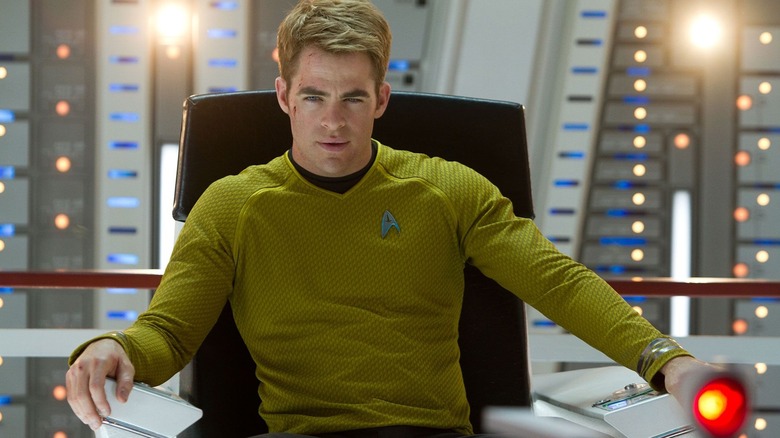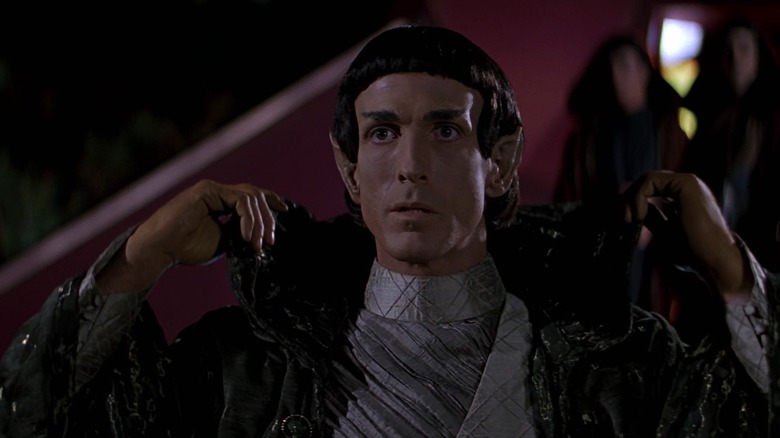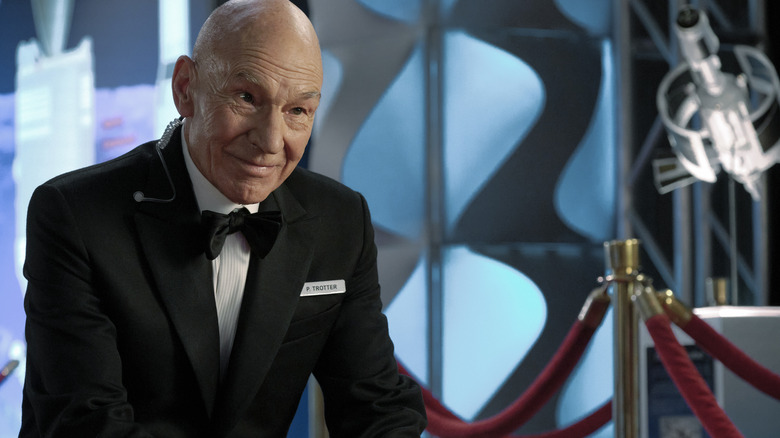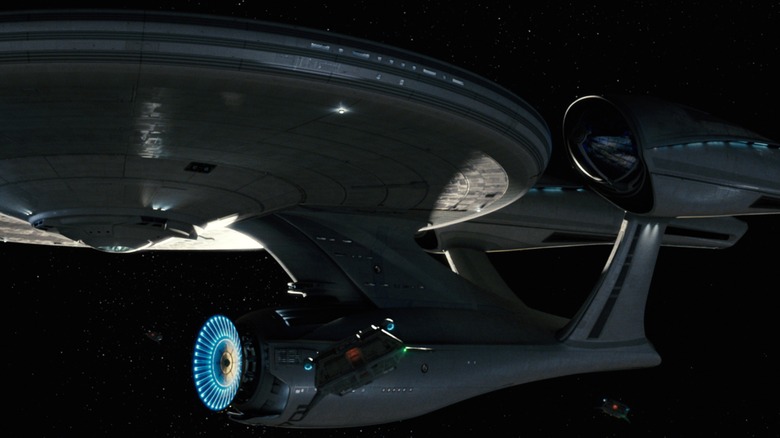The New Star Trek Movie Is A Prequel – But Will It Rewrite The Franchise Timeline?
It was announced today in the Hollywood Reporter that Simon Kinberg is taking over the development of the new "Star Trek" feature film, currently working its way through pre-production at Paramount. This new film will be the fourth to be connected to the Kelvin timeline of "Star Trek," a timeline which started with the events of J.J. Abrams' 2009 "Star Trek" film. As of this writing, Toby Haynes ("Andor") is slated to direct, while Seth Grahame-Smith ("Dark Shadows," "The LEGO Batman Movie") has signed on to write. Kinberg is a notable Hollywood player who wrote "X-Men: The Last Stand," "X-Men: Days of Future Past," "X-Men: Apocalypse," and "Dark Phoenix" (among many others) and who produced "The New Mutants," "Deadpool," "Logan," "X-Men: First Class," "Cinderella," "The Martian," and "Elysium" (among many others). He is a franchise guy through-and-through, and Paramount likely wanted a new producer with high-profile experience.
It has been reported that the new "Star Trek" movie will, to quote the Hollywood Reporter, "be set decades before the events of the 2009 movie that was directed J.J. Abrams, likely around modern times." They added that it "is said to involve the creation of the Starfleet and humankind's first contact with alien life."
These declarations will have some Trekkies' minds at yellow alert. As we all know, the Kelvin universe was an alternate timeline created by the time-travel shenanigans of a vengeful Romulan named Nero (Eric Bana). The timeline diverged when Nero appeared through a time portal in front of the U.S.S. Kelvin ... right when James T. Kirk was being born. Trekkies will happily leap in and point out that Kirk was born in 2233 ... but that First Contact — as dramatized in "Star Trek: First Contact" — took place in 2063.
Is Trek history being entirely re-written?
The timeline of Star Trek
To offer a brief timeline of events in the "Star Trek" universe, humanity was facing down some harrowing times in the late 20th century, and the world broke out into a series of devastating wars. First, there were the Eugenics Wars, in which tyrannical genetically selected supermen became global dictators. Audiences know about the Eugenics Wars through Khan (Ricardo Montalban), one of said dictators. Then there was the Second Civil War, talked about in a time-travel episode of "Star Trek: Deep Space Nine," which exacerbated poverty and misery on Earth, followed finally by World War III, which lasted from 2026 to 2053. World War III left humanity scattered and hopeless.
This was all before humanity had discovered faster-than-light travel, and trekking through the stars hadn't yet begun.
The statement that the new Trek movie will take place "likely around modern times" would need to place it prior to the above conflicts. It's worth noting that the second season of "Star Trek: Picard" was also a time travel story that took Picard (Patrick Stewart) and his friends back in time to 2024, prior to the Eugenics Wars. So it seems that part of Trek lore might have been covered already. We will have to see if "Star Trek 4" will take place before or after "Picard."
But that timeline couldn't incorporate First Contact.
It wouldn't be until 2063 that Zefram Cochrane (James Cromwell) would invent faster-than-light travel. The maiden voyage of his ship, the Phoenix, would attract a Vulcan vessel coincidentally passing by Earth. The Vulcans would land and initiate First Contact, ushering a new phase of peace on Earth. It was with First Contact that Trek's optimistic future would begin.
Will Kinberg's new film time-shift First Contact backward?
Is First Contact being time-shifted?
Continuing with Trek's timeline, First Contact allowed humanity to realize the errors of their warlike ways, and begin rebuilding after World War III, now with the Vulcans' help. This period would take the better part of a century, and humanity wouldn't be able to launch their own ship — the Enterprise — until the year 2151. The first adventures of the first Enterprise were dramatized in "Star Trek: Enterprise."
Kinberg's film could conceivably take place during the century after First Contact, but before the launch of the first Enterprise, although that timeframe would preclude star trekking; according to "Enterprise," the Vulcans were insistent that humans remain on Earth for 100 years, technologically and philosophically preparing themselves for encountering new life and new civilizations. "Enterprise" would indeed fall in line with "the creation of Starfleet," as stated in the Hollywood Reporter. Starfleet was formed before the launch of the Enterprise, sometime in the 2130s.
It's the "decades before" part that might have some Trekkies looking at the statement a little sideways. Since the Kelvin timeline didn't begin until 2233, the formation of Starfleet would be a full century before the 2009 film, not decades. And First Contact would be almost two centuries before the 2009 film.
Paramount, as of this writing, has not released any additional details about the upcoming film's plot, so we can only speculate as to when it might take place. Will it be a flashback or a time travel plot? But here's a daring thought: Kinberg's new film may openly rewrite Trek continuity and time-shift First Contact to earlier in humanity's timeline.
Gene Roddenberry's penance era
When looking back at the 1960s, when Gene Roddenberry first created "Star Trek," the world was a tumultuous place. Roddenberry looked out the window and saw war, violence, intolerance, and bigotry. He invented "Star Trek" as a reaction to all that, envisioning a future when war was over (because we wanted it), money had been eliminated, and bigotry was dead. But to achieve this utopia, humanity needed to hit a "low point" first. As such, the timeline of Trek required Earth to nearly destroy itself before it could have a moment of clarity.
If Kinberg aims to time-shift First Contact and the formation of Starfleet to the modern era, it would become a fascinating speculation indeed. If "Star Trek" began without the Roddenberrian moment of clarity, would utopia still be achieved? What if we had starships and access to Vulcans today in 2024? Would the utopia of "Star Trek" be kickstarted 200 years early, or would we humans, still presumably warlike, merely struggle through the Eugenics Wars/Second Civil War/World War III up in space instead of on the ground?
And if Kinberg's goal is to shift "Star Trek" history so dramatically, it would mean that he is deliberately erasing the Kelvin timeline. Remember that before the Kelvin timeline split, "Star Trek" was identical in both timelines. "Star Trek: Enterprise" still played itself out as we saw in the 2001 to 2005 TV series, and references to "Enterprise" were made liberally throughout 2016's "Star Trek Beyond," the second sequel to "Star Trek" (2009).
If Kinberg does set the action of his new film in the modern day, "Enterprise" would be retconned entirely ... as would all of "Star Trek."
That's even more daring than the parallel timeline from Abrams' film.
Time will tell.



